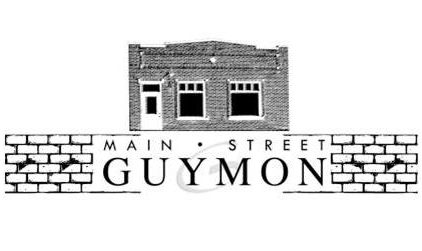William Pickett was one of the first great rodeo cowboys and is credited introducing the sport of bulldogging. He was born on Dec. 5, 1870, in Travis County, Texas, the second of 13 children born to Thomas Jefferson Pickett, a former slave, and Mary “Janie” Gilbert. Pickett was of black and Cherokee descent.
He and his brothers learned to ride and rope as young boys. By the time he was 18, he and his brothers began breaking horses and a cowboy service called Pickett Brothers Bronco Busters and Rough Riders Association in Taylor, Texas. Credited with inventing bulldogging, the skill of wrestling a running steer to the ground, Pickett began to supplement his income by demonstrating his bulldogging skills and other stunts at county fairs. Legend has it that Pickett resorted to biting the lip of a difficult steer to wrestle it to the dirt.
At age 20, Pickett married Maggie Turner, a former slave and daughter of a white plantation owner. The couple eventually had nine children.
In 1907, with these skills, he was hired as a cowhand on the 101 Ranch in Oklahoma and participated in the Miller Brothers’ 101 Ranch Wild West Show that featured notable western characters such as Buffalo Bill Cody, Will Rogers, Tom Mix, and others. Pickett moved his family to Oklahoma.
The show toured around the world. During these times he was sometimes banned from shows because of his color and was forced to claim to be a full – blooded Indian in order to perform. Pickett performed in the show until about 1916.
He later appeared in the silent films The Bull-Dogger (1921) and The Crimson Skull (1922). Pickett continued to work on the ranch until he was kicked in the head while breaking a colt at the 101 Ranch. A few days later he died of his injuries on Apr. 2, 1932, and was buried on the ranch, north of Marland, Okla., near Ponca City.
He was honored by the U.S. Postal Service, who featured Pickett on a stamp as part of its Legends of the West series.
Today the cowboy skill of bulldogging is still popular on the rodeo circuit. The PRCA, professional rodeo cowboy association, describes bulldogging as “speed and strength are the name of the game in steer wrestling. In fact, with a world record sitting at 2.4 seconds, steer wrestling is the quickest event in rodeo.
The objective of the steer wrestler, who is also known as a ‘bulldogger,’ is to use strength and technique to wrestle a steer to the ground as quickly as possible.
“The steer generally weighs more than twice as much as the cowboy and, at the time the two come together, they’re both often traveling at 30 miles per hour. Speed and precision, the two most important ingredients in steer wrestling, make bulldogging one of rodeo’s most challenging events.
“As with tie-down and team ropers, the bulldogger starts on horseback in a box. The steer gets a head start that is determined by the size of the arena. When the steer reaches the advantage point, the bulldogger takes off in pursuit.
“A perfect combination of strength, timing and technique are necessary for success in the lightning – quick event of steer wrestling. In addition to strength, two other skills critical to success in steer wrestling are timing and balance.
“When the cowboy reaches the steer, he slides down and off the right side of his galloping horse, hooks his right arm around the steer’s right horn, grasps the left horn with his left hand and, using strength and leverage, slows the animal and wrestles it to the ground. His work isn’t complete until the steer is on its side with all four feet pointing the same direction.
Checotah, Okla., calls itself the Steer Wrestling Capitol of the World for the many world class bulldoggers that call this eastern Oklahoma town home.
Be sure to attend the Pioneer Day Rodeo in Guymon this month where you can watch the sport of bull dogging, or steer wrestling, firsthand. The rodeo will be at Guymon’s Hitch Arena on Sunset Drive, Aug. 21 – 23. The performance are Friday and Saturday at 7:30 pm, Saturday and Sunday at 2 pm. The bull riding is the last event at each rodeo performance. Get your tickets early at an outlet for the cheapest price.
